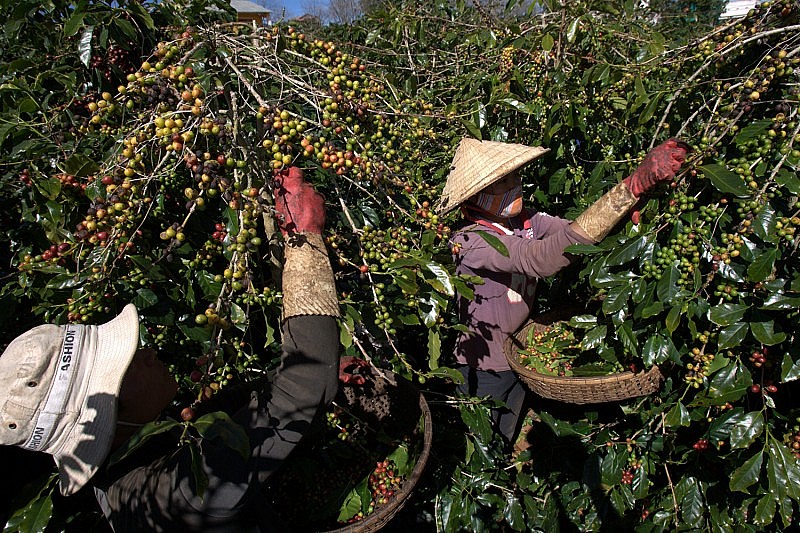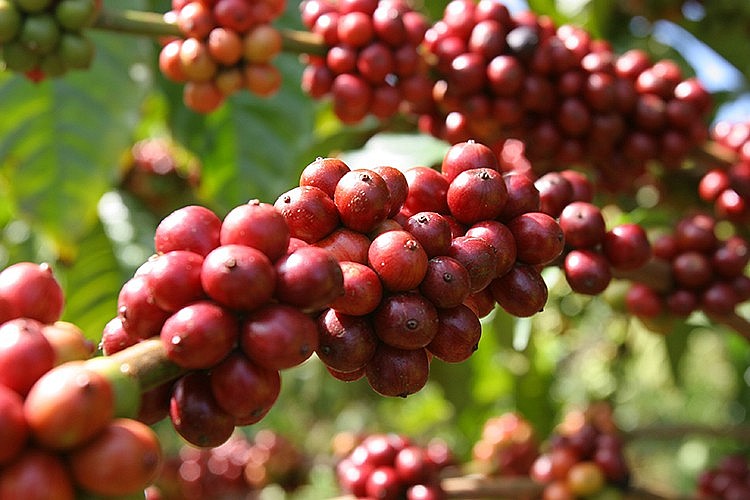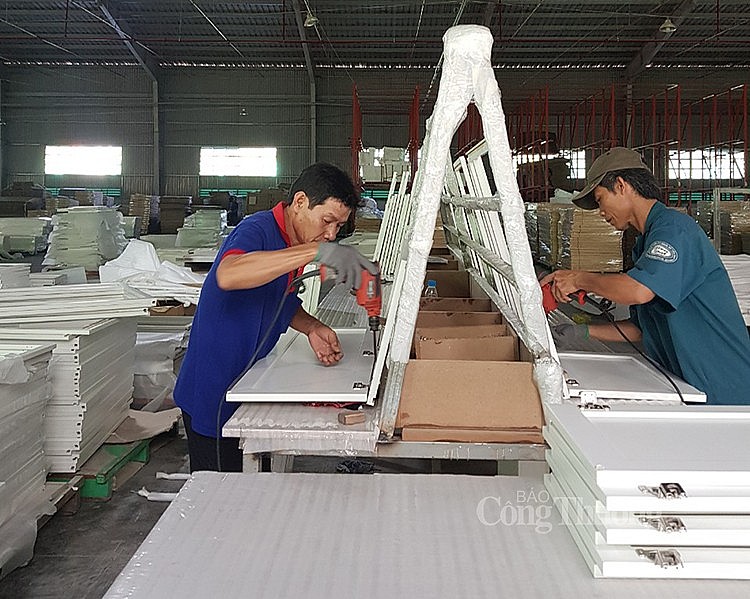 News
News
On November 17, 2021, the European Commission (EC) proposed a bill to prevent the import of goods that cause deforestation and forest degradation. Less than two years later, on April 19, 2023, the European Parliament and on May 16, 2023, the European Council approved this bill.
The bill, officially called the EU Deforestation-free Regulation (EUDR), will ban the import of agricultural and forestry products whose processes are produced on land derived from deforestation and degradation . forests from December 31, 2020.
 |
| The farmer is harvesting coffee |
Commodities affected by this measure include: livestock, cocoa, coffee, palm oil, rubber, soybeans and timber, as well as items raised or produced with those products. leather, chocolate, printing paper, furniture, charcoal and some palm oil derivatives.
Thus, it can be seen that wood and wood products, coffee, and rubber are the main export sectors of Vietnam affected when this regulation is applied.
According to this regulation, 100% of some agricultural products of Vietnam, especially coffee, when imported into the EU market, need to have location information (GPS) to each garden, based on that confirmation of the risk. causing deforestation by remote sensing monitoring systems.
Request traceability to the plantation, prove that it does not cause deforestation with explanatory reports, analyze risks and solutions to reduce the risk of deforestation, assess and reduce the risk of social problems ( land use rights, labor, income, etc.).
Thus, the regulation, when effective, is expected to take effect from December 2024, which will directly affect actors in the supply chains of the above industry.
Mr. Nguyen Do Anh Tuan - Director of the Department of International Cooperation ( Ministry of Agriculture and Rural Development ) - assessed, commodity supply chains will face many challenges to meet the EUDR, especially in the EUDR. problem of location data, traceability, monitoring system, anti-deforestation response.
“With this European regulation, we have no choice but to take their requirements seriously because this is an important market. For example, in terms of coffee alone, Europe imports more than 40% of Vietnam's output every year," shared Mr. Nguyen Do Anh Tuan.
Ms. Tran Thi Quynh Chi, Asia Regional Director - Sustainable Landscape Program, Sustainable Trade Initiative (IDH) of the Netherlands - assessed, this is a rather difficult regulation, because if you want to To achieve this requirement, we must have a system of origin coming from the household and to each garden. Only then will it be possible to prove to the EU that these products are not from deforestation areas.
“World coffee consumption follows the trend of increasingly demanding sustainability, in which, sustainable purchasing or responsible purchasing of products; Meeting the requirements of reducing emissions to zero and moving to zero. To both maintain productivity and meet market requirements, this is a very difficult problem," said Ms. Tran Thi Quynh Chi.
Coffee - one of the industries that will be affected by the new regulation. Mr. Nguyen Nam Hai - Chairman of the Vietnam Coffee - Cocoa Association - informed that for many years, the coffee area in Vietnam has been stable from 650,000 to 700,000 hectares, and since 2014, the Prime Minister has asked to "close forest gate", so the destruction of new plantations is unlikely to be much, especially from 2019 onwards.
 |
| Coffee - one of the industries that will be affected by the new regulations on |
The European Union (EU) is Vietnam's largest coffee consumption market with a market share of over 40% of export volume. Vietnam's coffee exports to this market in 2022 reached 689,049 tons, worth nearly $1.5 billion, up 25.8% in volume and 45.4% in value compared to 2021.
The main time to implement the EU's EUDR regulation is the end of 2024. The new EU regulation will be both a challenge and an opportunity for Vietnam's coffee industry.
Talking about the challenge, Mr. Nguyen Nam Hai shared, the most difficult traceability is for farmers. With over 1.3 million farmers, the area is fragmented, most of which are only 0.5 ha or less in 11 coffee growing provinces. This number of areas is actually legal, but proving the origin is not easy. Besides, there is the issue of cost to implement traceability.
Not only for farmers, Mr. Nguyen Nam Hai said that difficulties for businesses are many if subjective, because the EU market accounts for over 40% of Vietnam's total annual coffee exports. Therefore, if it is tightened, the effect will be not small.
“On the side of exporters, it is very necessary to have specific information from Europe such as: Application timeline, specific products subject to application ... for businesses to prepare. If necessary, Vietnam should ask the European Union to delay the application of this regulation so that businesses can better prepare ," said Mr. Nguyen Nam Hai.
 |
| Processing wooden furniture for export |
The EU market accounts for about 4-5% of the total export turnover of the wood industry with an average export value of about 500 million USD per year. The main products that Vietnamese wood enterprises export to this market are items of HS 94 group (wooden furniture).
According to the Vietnam Timber and Forest Products Association (VIFOREST), the EC's new regulation wants to use market forces to promote public authorities and people and businesses in other countries to be more responsible in order to contribute to reducing deforestation and forest degradation.
Interior and exterior products or industrial boards, and other products are items regulated by this regulation. However, at present, Vietnam no longer has the status of converting natural forest land. There are cases of illegal conversion without timber products exported to the EU. Therefore, the new regulations will not be too difficult for wood businesses.
However, VIFOREST also noted that with this new regulation, wood exporters will have more work to do. Enterprises must strengthen accountability and have to trace the wood materials they use.
|
+ In the immediate future, three products of Vietnam including wood, coffee, and rubber will be required to comply with the European Anti-Deforestation Regulation (EUDR). + Currently, information about the location of rubber, coffee, and timber plantations in Vietnam has not been accurately determined on the international coordinate system for each plot. + The database system of Vietnam's forest area and coffee growing area has not been fully and accurately gathered. + Currently, the EU does not have specific guidelines, so the preparation for 2024 to go into effect will be difficult for businesses, especially for small coffee growers whose products are sold to exporters. export to EU |
Lesson 2: Is it only a challenge?